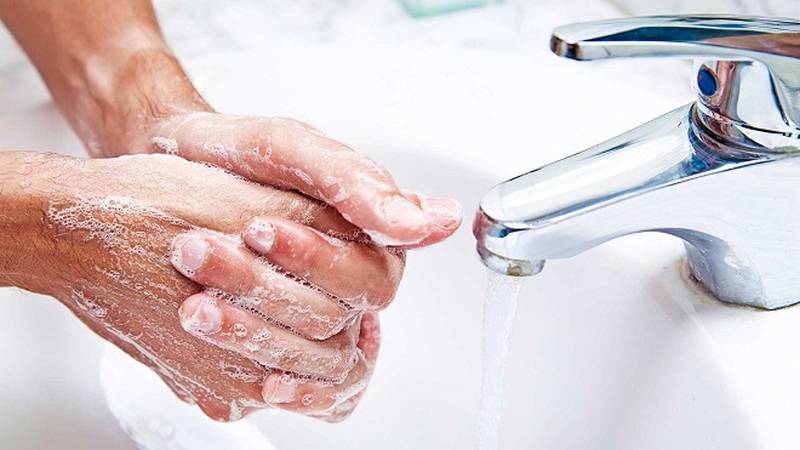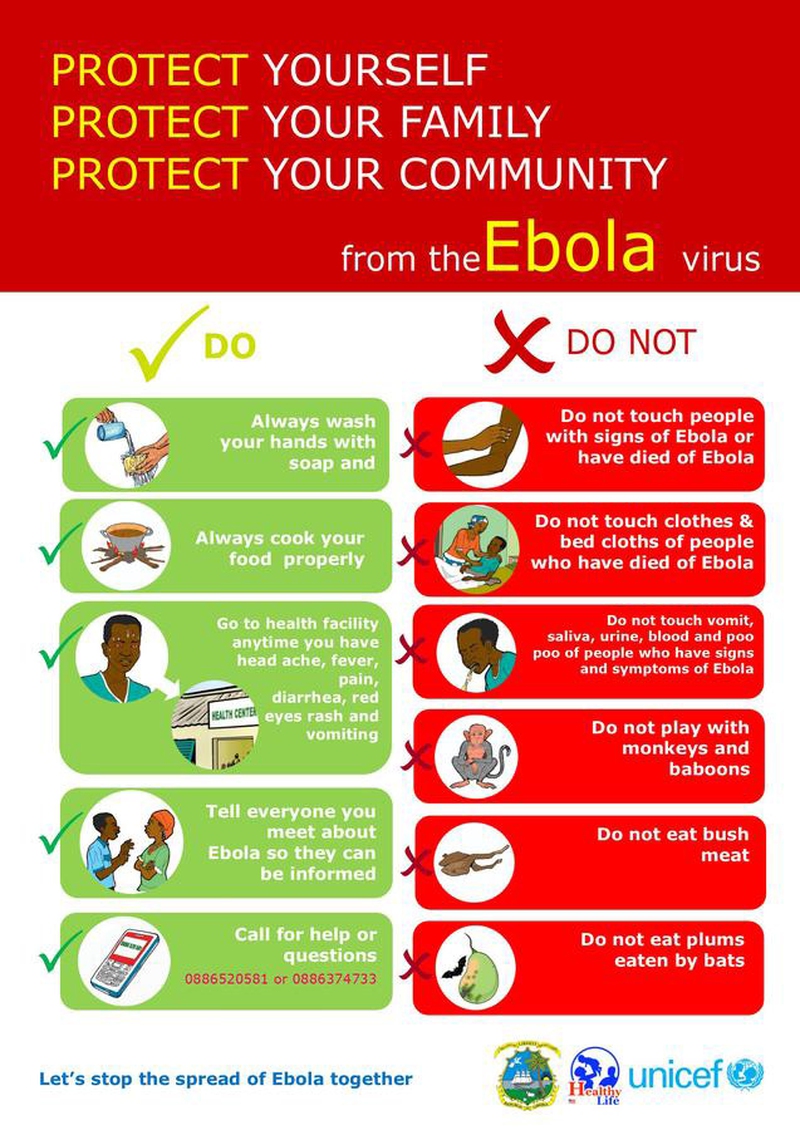Ebola hemorrhagic fever, also referred to as Ebola HF, is a severe disease that is often fatal, and is seen in humans and primates, with an origin that is not known. Most of the scientific community believes that the disease was animal borne and then transferred to humans. The disease was first seen in the Democratic Republic of Congo near the Ebola river, where the disease receives its name. Since its first discovery in 1976, the disease has been confirmed in Gabon, Sierra Leone, Sudan, Uganda, Liberia, the Ivory Coast, and Guinea. It is vital that a person learn ebola virus prevention, learn how to deal with the effects of the disease and what to do if infected.

How to Prevent Ebola Virus Infection
Always avoid contact with bodily fluids of those infected with Ebola or an unknown disease
Not only does a person need to avoid the direct bodily fluids of an infected person, but they must also avoid the bodily fluids from a person who has passed. These bodily fluids include blood, saliva, vomit, feces and urine. Direct contact can lead to infection, as well as contact with these fluids via needles or even thermometers. This is the most essential step of ebola virus prevention.
Avoid items that have come in contact with those who are diagnosed with Ebola
Even handling clothing or objects of a person who has Ebola can lead to contamination for a person. That is why special clothing are worn when dealing with any item that belongs to someone who is contaminated.
Avoid contact with wild animals and the meat of wild animals
Getting bitten by a wild animal that carries Ebola can lead to infection. Wild animals that can carry this are chimpanzees, monkeys, fruit bats, porcupines, gorillas, pigs and forest antelope. In addition, the meat of these wild animals can still carry the disease and is only edible after being cooked at a high temperature to remove this. However, the handling of this meat can still lead to a person becoming infected.
Wash your hands routinely
This is especially true if you are in an area that is known for having Ebola. Hand washing is the best way to prevent ebola virus infection. You should always use soap and water when available. If this is not available, washing your hands with something that has at least 60% alcohol in it will kill the germs.
Know what the symptoms of Ebola are, and seek medical treatment if you notice these signs
Never underestimate any fever or sign of Ebola if you have this, and you have traveled to an area in which Ebola is found. If you do notice flu-like signs, such as fever, muscle pain, headache and vomitting, get to a doctor immediately and let the medical staff know that you have been to an area that has Ebola.
Avoid areas that are having Ebola outbreaks
By avoiding the areas in the world that are having Ebola outbreaks, you greatly decrease your chances of catching Ebola. Unless traveling to these areas is of grave importance, they should be avoided where the virus has been found. If you are planning a trip to West African countries give it a miss.
Try to avoid West Africa hospitals
If you do not have Ebola, but need medical attention, avoid those West African hospitals, as these are most often treating Ebola patients. Due to the high number of Ebola patients they have, the chances of someone becoming infected in the hospital is relatively high. In order to find the best hospital to go to, the US embassy or consulate can often direct you to the best place for medical treatment without the risk of Ebola.
Do not go to funerals or burial sites of those who die from Ebola
Though it may seem disrespectful, those who die with Ebola are often more contagious than those who are still alive. Thus, it is fairly easy for someone to come into contact with the disease in these areas. This is why when a person dies from Ebola, the body has to be disposed of in a proper manner and by the proper authorities. This is one important step in Ebola virus prevention.
Monitor your health for 21 days after being exposed to Ebola
If a person has come into contact with Ebola, or even suspects that they have come into contact, they must monitor their health for the following 21 days. As this is the incubation period for the disease. If symptoms of Ebola are noticed, then medical attention must be sought immediately.
Do not care for Ebola patients at your home
Ebola is best treated in a professional medical facility. However, if a person were to choose to treat this at their home in the aid of a family member, this family member would need to notify public health officials and ensure that they have medical grade equipment and protective clothing to utilize. It is highly recommended to not care for an Ebola patient in a home.
Health facilities should isolate Ebola patients from other patients
In the hospital or facility in which Ebola patients are being treated, they must have their own space to avoid contaminating other patients who do not have Ebola. In a facility that does not isolate Ebola patients, the risk of spreading the disease increase.
Health care professionals should wear protective clothing
Protective clothing is referred to as masks, gloves, gowns and eye protection, which should decrease the chances of coming into contact with bodily fluids and spreading Ebola. All professionals who treat the Ebola patient should ensure that they are wearing these items, as this is mandatory for most health care locations.
Health care workers can stop visitors from seeing Ebola patients
Though this is not a requirement, visitors should be restricted to only those who are considered important for the well-being of the patient. Such as a child visiting an infected parent.
All health care equipment should be disposed of and sterilized properly
With all instruments being used in the care of Ebola patients, it should be disposed of or sterilized properly. This means disposing of sharp needles that have come into contact with bodily fluids, and disposing of items that are used to treat the patient.
The following educational poster from UNICEF can tell you more:
Video that tells us more about ebola virus prevention and how to stop the ebola spread:


View All Comments /Add Comment